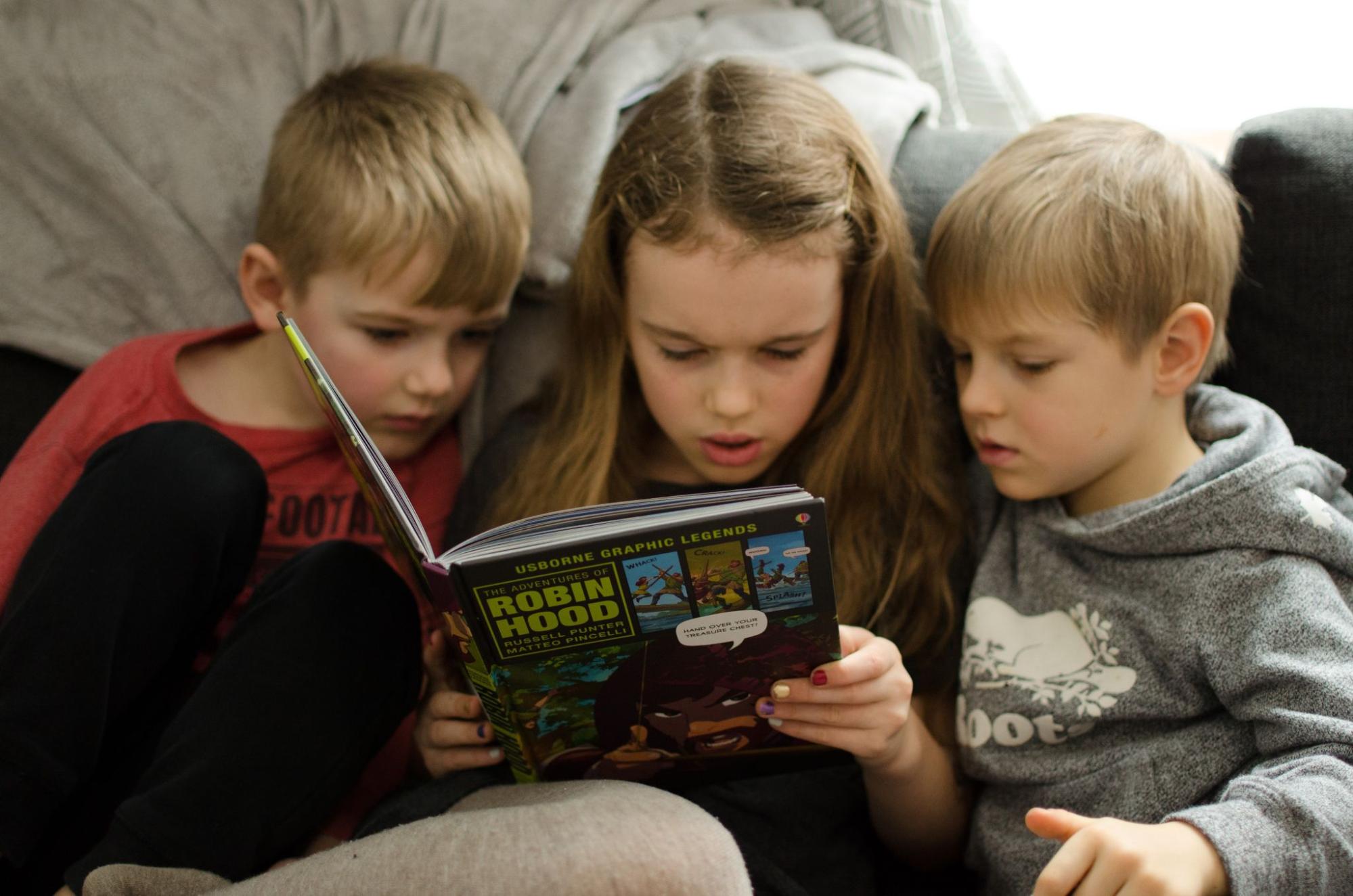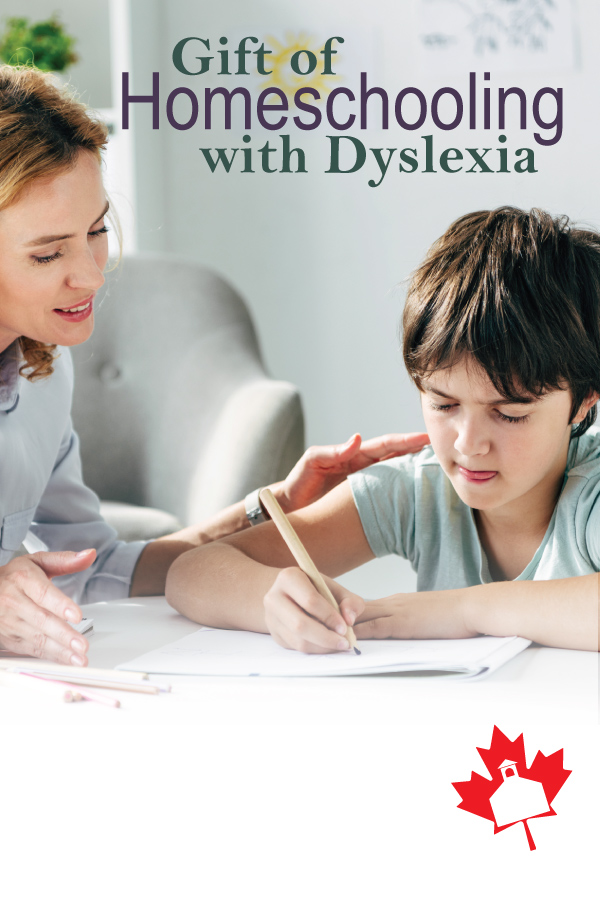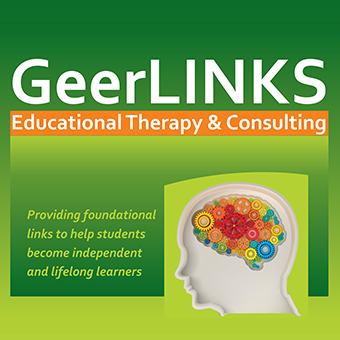

Homeschooling your child is a gift!
Homeschooling your child with dyslexia is also a gift!
Agree or Disagree?
For most homeschooling parents, having a child with dyslexia (diagnosed or undiagnosed) can be stressful. You know that you’ve spent a lot of time teaching the letters and sounds. You’ve read to them daily since they were infants, and yet, they can’t seem to unlock the code. And even when they’ve learned to read, they say they hate reading and your heart sinks.
Learning to read is foundational for most of the school subjects and is the cornerstone to educational success. As a homeschool parent, it can feel daunting to have to read all the questions in every subject in order to support your child. It feels like your child always needs your help, and you are desperate to find the magic solution to helping your dyslexic child crack the code and conquer this reading skill.
Here are a few tips to keep in mind as you navigate this path.
First, you need to know that you are your child’s best teacher!
I know, personally, the feeling that floods your soul when you see your child struggling. I know the blame game – that guilt that makes you feel like you’ve failed your child. I know the ‘if-only’ conversations that you have with yourself – if only I had chosen the right curriculum, if only I had spent more time with this child, if only we had begun formal instruction earlier.
Over and over again, as I consult with homeschool parents, I am awed at how well they know their children, and I’m sure you are no different. It is proven that individual instruction is the best method for helping the dyslexic learner. And homeschooling offers this wonderful opportunity!
Did you know that the International Dyslexia Association (IDA) supports homeschooling as a viable option for parents committed to securing an excellent education for their children?
Second, choose a systematic, explicit reading and spelling curriculum and do it daily!
The latest research is revealing that learning to read IS a science. We were not born to read. Learning to read requires building a new circuit or pathway in our brain. It involves many different regions in our brain working together, all at the same time. This is no small feat! Dr. Maryanne Wolf, researcher and educator, tells us that students with dyslexia need a different teaching method for acquiring the skill and fluency of reading.

Did you notice she says the skill AND the fluency? There are many dyslexics who have learned the skill but aren’t fluent. They don’t enjoy reading. Research suggests that perhaps the reading instruction ended too soon for them. Keep reading aloud until they can read it with 95% fluency. I know you feel like you’ve tried everything, but I encourage you to keep on keeping on!
As you teach the reading to your student, consider these three components:
Read daily. Use explicit instruction. Use a multi-sensory approach.
For students with dyslexia, it is so important to read to them and with them every day. As they hear the patterns of language and experience the joy of written work, they are building the brain pathways for reading to emerge. Make your ‘read-aloud’ time of day the highlight of your day. Pour a cup of tea, find a cozy corner, and get lost in the story. Start with a short period of time and see how this precious time grows.
When they practice reading with you, use stories that are easy for them or just a slight level above their ability. Make this time a rich learning experience. Take turns reading. You read a sentence; they read a sentence. You read a page; they read a page.
What is explicit instruction? It is now proven that reading needs to be taught systematically. It is also proven that spelling is an important step in the reinforcement of reading. This is true for ALL students, but students with dyslexia especially need to understand the patterns and rules of language. Choose a curriculum that has roots in the Orton Gillingham approach. The important part here is the daily instruction of short lessons.
We all learn best using a variety of our senses, but our children with dyslexia need this especially. They often have amazing strengths in other perceptual areas. Using a multi-sensory approach for learning spelling patterns and discovering the rules can be the glue that connects the learning and brings the ‘aha’ moments. Use coloured, tactile letters or picture images to help them touch and feel and see the patterns so that they can unlock the mystery of the code.
And, when you have hit a wall and feel like you’ve tried everything, it may be appropriate for you to reach out to a specialized tutor or educational therapist that offers explicit, systematic instruction. I, personally, did just that for my own child, and what a difference that made in his life (and mine).

Third, find your child’s strengths and build on them!
Our dyslexic students have average to above average intelligence. They have abilities in some areas that far surpass our other students. It is so important for you, as their homeschooling parent, to help them discover these strengths and help them soar to new heights.
What do they LOVE? Offer them a lot of experiences so that they can find their passion. Be sure to offer a good portion of their day developing this passion. Oh, I know, the obsession can change from week to week or even from day to day. But it is so important that they have ample opportunity to dream, to discover, and to build their knowledge base in their own way!
It seems that the dyslexic learner has unique abilities that many of us do not even understand. Sometimes, it’s hard for us to see past the trees to see the beauty of the forest. We are so focused on their inability to catch the reading concept that we can’t see these extra gifts. Celebrate your child’s uniqueness!
So then, what does a school day look like for these students?
A little bit of reading. A little bit of writing. A little bit of math. A lot of exploring and discovering.
This journey is worth it. Homeschooling your child is a gift! Homeschooling your child with dyslexia is also a gift!
 Diane Geerlinks is a professionally certified Educational Therapist, Director of GeerLINKS Educational Therapy & Consulting and is Marketing Director for NILD Canada (National Institute for Learning Development). She is a motivational speaker and brings her 25 years of homeschool experience to each workshop presentation. In 2009, Diane trained as an NILD Educational Therapist and has since continued to pursue her passion for learning with particular focus on the neuroplasticity of the brain and how we can improve our capacity for learning at any age. Diane is a lively and passionate speaker and presents at educators’ conferences across Canada.
Diane Geerlinks is a professionally certified Educational Therapist, Director of GeerLINKS Educational Therapy & Consulting and is Marketing Director for NILD Canada (National Institute for Learning Development). She is a motivational speaker and brings her 25 years of homeschool experience to each workshop presentation. In 2009, Diane trained as an NILD Educational Therapist and has since continued to pursue her passion for learning with particular focus on the neuroplasticity of the brain and how we can improve our capacity for learning at any age. Diane is a lively and passionate speaker and presents at educators’ conferences across Canada.














